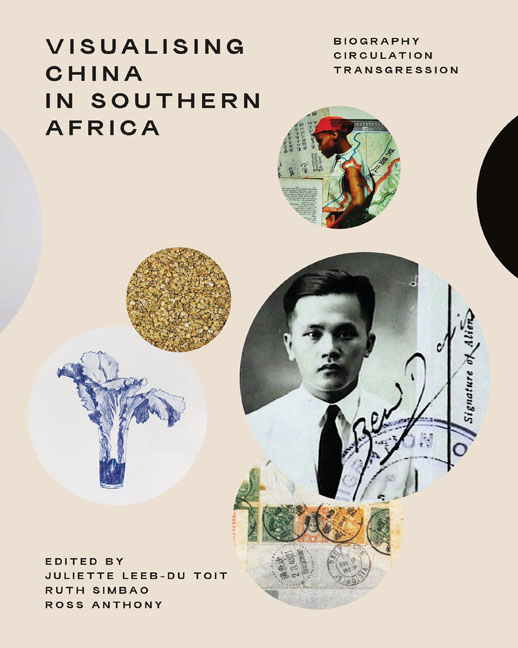3 - The Chinese Camera Club of South Africa: Landscape and Belonging
Published online by Cambridge University Press: 24 November 2023
Summary
A DIFFERENT LENS
Formed in Johannesburg in 1952, the Chinese Camera Club of South Africa gained recognition among its peers for a distinctive approach to landscape photography. Its members – some of whom were born in southern China and emigrated to South Africa during their teenage years, and some of whom were second- or third-generation immigrants born in South Africa – were classified as ‘coloured’ under the Population Registration Act of 1950 and experienced structural discrimination, exclusion and racism throughout the period marked by South Africa's formation in 1910 to the demise of apartheid in 1994. They drew on conventions associated with classical Chinese painting and appropriated twentieth-century trajectories of photographic practice from China and East Asia and deployed them within the spatial coordinates of apartheid South Africa. Such patterns of photographic mediation were facilitated by institutional links that were established and maintained between the Chinese Camera Club and photographers and camera clubs in East Asia. In producing such photographs, they established and publicised a proprietorial relationship with Chinese art-making practices. This cemented a sense of their ongoing and privileged connection to Chinese culture and civilisation, which acted as a source of pride and allowed them to deflect the indignities of apartheid.
This chapter explores how their mediation of a so-called Chinese approach to photography was facilitated by personal and organisational links with East Asian nation states (most notably Taiwan) and discourses of Chinese nationalism. Although I concentrate here on landscape photographs that referenced notions of ‘China’ and Chinese visual culture, it is worth noting that club members produced landscape photographs in a range of genres in order to express configurations of identity that were simultaneously local and transnational.
EXCLUSIVE CLUBS: LINKS TO HONG KONG, TAIWAN AND MAINLAND CHINA
The Chinese Camera Club of South Africa was established in 1952 by Jack Ho, a photography enthusiast who was born in Johannesburg in 1931. Around 1948, Jack Ho's father sent him to Hong Kong for two years of schooling. This educational pattern reflected a widespread desire among Chinese South African parents for their children to retain Chinese linguistic and social competencies alongside proficiency in English and Afrikaans (Yap and Man 1996, 279). During this period in Hong Kong, camera clubs were experiencing a renaissance following a stagnation during the Japanese occupation (1941–1945).
- Type
- Chapter
- Information
- Visualising China in Southern AfricaBiography, Circulation, Transgression, pp. 62 - 73Publisher: Wits University PressPrint publication year: 2023



